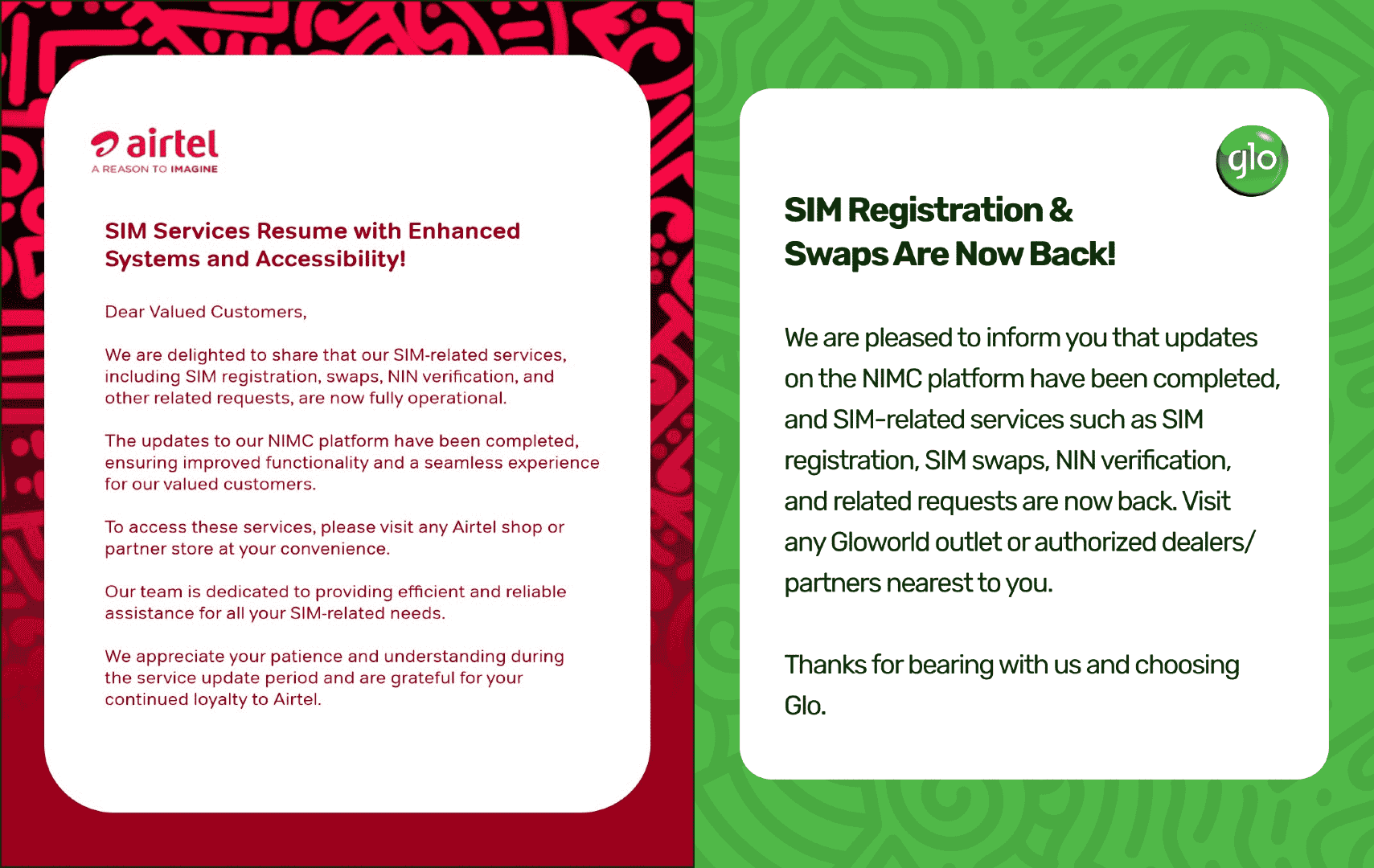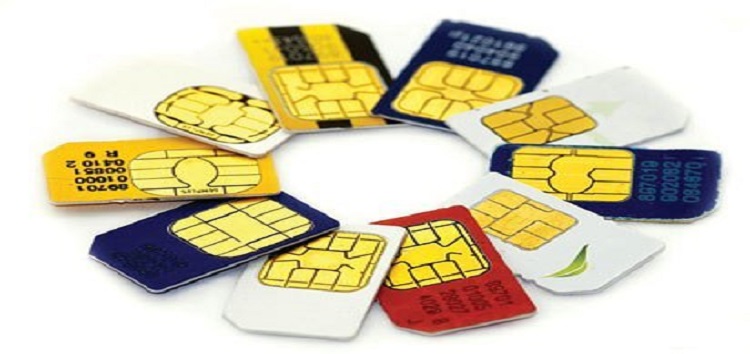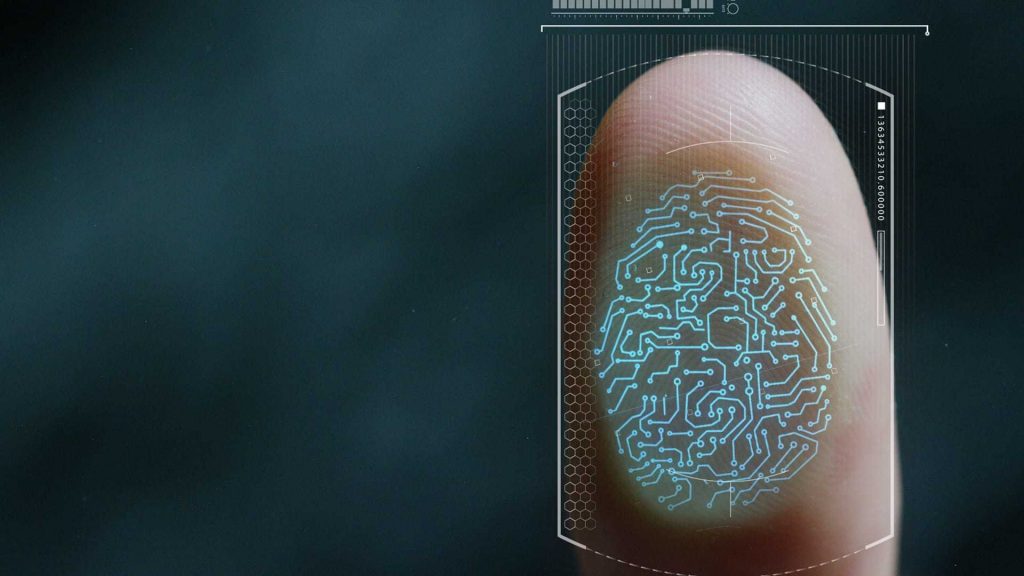



































SIM activation and replacement resumes following telcos transition to new identity verification portal
 IDTT
IDTT
 XWP
XWP
 X
X
 X
X
 X
X
Nigerian telecom operators have announced the full restoration of all SIM-related services such as registration, swaps, and NIN validations. The development follows weeks of disruption owing to a migration to a new identity verification portal.
In a separate statement by two Nigerian telecom operators, Airtel Nigeria and Globacom, it was confirmed that Nigerians can now access real-time activities such as verification processes required for SIM registration, number porting and other essential services.
Confirming the development via an X (formerly Twitter) post on Monday, July 28, 2025, Airtel noted that the scheduled update has been completed, ensuring improved functionality and a seamless experience for users.
“Dear Valued Customers, We are delighted to share that our SIM-related services, including SIM registration, swaps, NIN verification, and other related requests, are now fully operational,” it said.
While encouraging its customers to utilise the service after weeks of pause, Airtel Nigeria appreciated subscribers’ patience during the period and reiterated its commitment to quality service delivery.

In the same light, Globacom, in a statement issued last Thursday, said that subscribers can visit its outlets nationwide to access SIM-related services upon full restoration of the identity verification portal.
“We are pleased to inform you that updates on the NIMC platform have been completed, and SIM-related services such as SIM registration, SIM swaps, NIN verification, and related requests are now back,” the company said.
With the latest development, the purchase of new SIM cards is now available for Nigerians.
Also Read: SIM swap service resumes as telcos migrate to NINAuth portal.
Recall that on July 2, 2025, the Association of Licensed Telecommunications Operators of Nigeria (ALTON) announced a sudden technical challenge, where everyday activities such as verification processes required for SIM registration, number porting, and other essential services were temporarily halted for millions of Nigerian telecom subscribers.
It explained that the migration is intended to improve the security and efficiency of national identity verification.
“We understand the inconvenience this may cause and sincerely apologise for the disruption. We remain fully committed to regulatory compliance and will continue to provide timely updates,” ALTON said in early July.
In the last four weeks, the situation has caused several inconveniences for Nigerian subscribers and businesses who rely on these services for communication, business operations, and digital access.

Identity verification portal transition on SIM-related services
Before the full restoration, telecom operators such as MTN and Airtel Nigeria earlier informed subscribers of the SIM Swap service availability. Therein, the transition was credited to a shift to the NINAuth portal.
According to the National Identification Management System (NIMC), the transition to a new identity verification portal has now made identity verification seamless and secure. The move is also backed by the efforts to ensure that Nigerian subscribers have full control over their identity management.
At the face of identity verification lies the process of confirming that a person is who they claim to be. This process is crucial for preventing fraud, securing transactions, and ensuring only authorised individuals access services or systems. It involves confirming the authenticity of presented information and matching it to the individual attempting the verification.
With this, the NIN linkage plays a pivotal role as verification falls within daily activities such as SIM card ownership and usage.

The compulsory exercise began in December 2020 when the government of President Muhammadu Buhari directed telecommunication companies to deactivate unregistered SIM cards that were not linked to NIN.
According to the Nigerian Communications Commission (NCC), the verification of all mobile users strengthens confidence in digital transactions, reduces the risk of fraud and cybercrime, and supports greater participation in e-commerce, digital banking, and mobile money services. It also enhances financial inclusion, drives economic growth, and provides a critical infrastructure that assures access to the benefits of a robust digital landscape for the citizenry.

